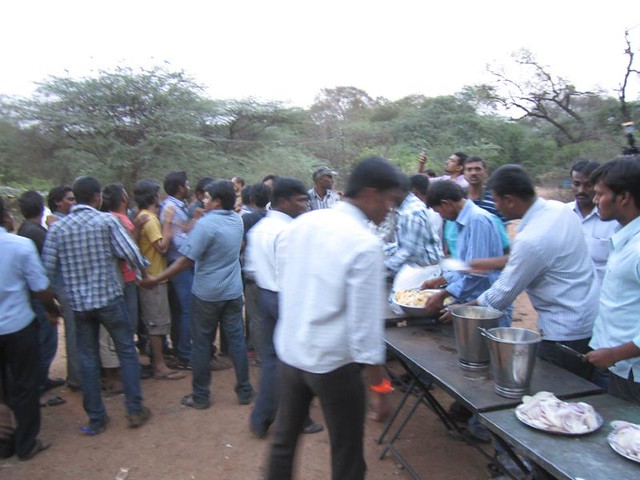By Yogesh Maitreya for TwoCircles.net,
The political ground in India has always been caste-ridden. Candidates, who claim to play politics excluding these fundamental factors of sociology of India, only put voters in complete oblivion where voters are being lift up from their ground level identity and persuade to imagine their space in candidate’s utopian story-telling about changes, the changes which are mostly caste based matters to which utopian language wipes with its lucrative tongue.
Those who lure the voters by their so called ‘inclusive’ politics, adding some spices of their politics being caste, class, and culture-free, are those who want to implement their newest version of Brahmanical/fundamentalist/religious hegemony by introducing the new versions of caste/class politics, and has been corrupting the logical/analytical minds of the voters.

The recent national election manifested a fact: not only consent of laymen/women can be manufactured but deceitfully stolen with the intolerant rants of casteist/religious dogmas. Mind it! This happens in every smallest of small election in India though whether they are at universities level electoral politics. For example, a contesting candidate for an important post at university level would stand up and say “I won’t allow the consumption at Beef and Pork at public places like university campus and canteen”. The transcendental meaning of above statement which purely based on candidate’s personal value system, religiously fundamentalist or caste-associated, divulges the notion how the religious prejudices not only being reluctant to accept but refuse the diversity of dietary patterns of various North-eastern tribes and Dalits who have cultural association with consumption of Beef and Pork.
In this view, candidate’s authority of being democratic citizen lies in great doubt. In this regard, he/she seems to be fundamentality adamant to accept that the food which their religious doctrine would not allow also could be someone’s staple food. Now consumption of Beef and Pork, with due respect to all the religious sentiments, is a matter of cultural assertion for tribes and Dalits. Not allowing its consumption is to marginalise the dietary pattern of Dalits and tribes in the public space. Also candidate’s dissent to its consumption in the public space mutilates the validity of public reason in the democratic/secular space.
The moral and political values which are attached to Beef/pork consumption in the public space, when not allowed by the candidate who represents them, then inability of candidate’s democratic value system towards inclusion of Dalit/Bahujan/Adivasi culture into public space being exposed to the voters for who candidate claims to stand for. This dissent from a representative candidate build a danger for democratic public space which Rawls illustrated by saying that “The idea of public reason specifies at the deepest level the basic moral and political values that are to determine a constitutional democratic government’s relation to its citizens and their relation to one another. In short, it concerns how the political relation is to be understood. Those who reject constitutional democracy with its criterion of reciprocity will of course reject the very idea of public reason.”
The reciprocity in the matter of consumption of Beef and Pork, when pulls away by a candidate who claims to represent the public reason of democratic society in the electoral politics, then the moral and political values of tribals and Dalits which are associated with Beef/pork consumption are being sidelined by exercising deliberate exclusion of Dalits and tribals in the public sphere, where public reasoning, if exercise by representing candidate, ought to respect the dietary pattern and its moral and political values.
The consumptions of Beef/pork in the public space always condemned by and seen with stark eyes of religiously fundamentalist and extremist groups. When the new breed of such fundamentalist ideologies occupies the public space, they start to implicate the extremism towards Beef/pork consumption without giving themselves a chance to analyse the diverse sociology of India with regard to theology and its association with consumption of Beef/pork.

Such groups, when, stand to represent public, commit great mistake to relate the notion of public being homogenous in India, whereas India is radically diversified country in every manner. Hence to refuse the consumption of Beef/pork (with respect to all religious sentiments in saying this and conscious not to hurt any religious doctrine) in public spaces is to refuse and exclude Dalits and tribals for whom the consumption of Beef/pork has moral as well as political values which constitute their indigenous cultural diversity.
The claimants of public representation should understand this fact of consumption with the sociological analysis of diversified cultural ground of Indian life, which is contentious with regards to culture, language and even consumption. Within public space, if the place and the claimants could exercise little bit of democratic values to make the public space much more secular, then consumption of Beef/pork would only be seen as a matter of dietary pattern, and would not supplement derogation to anybody’s religious doctrines.
—
Yogesh Maitreya is doing his M.A in Criminology and Justice (2013-15) from TISS (Tata Institute of Social Sciences, Mumbai.

